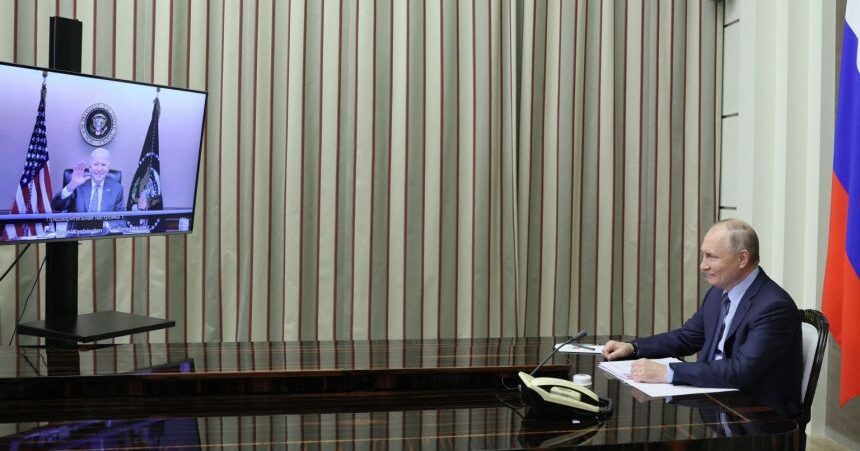
What Are the Results of Putin-Biden Virtual Talks?
Well, the results of the virtual meeting between Vladimir Putin and Joe Biden were predictable.
Of course, there were no major breakthroughs. And if there were any agreements, they were not released to us.
Each side made sure the information was as limited and “dry” as possible, for example, through the presidents' refusal to deliver remarks on the results of the talks in favor of press releases and the creation of an almost “sterile” information space, strictly limiting participation of the media and their own bureaucratic apparatus.
Personally, I infer the following from the second Putin-Biden meeting and the accompanying press releases, statements and body language of the two sides:
1. European countries and the U.S. are ready to have a pragmatic, balanced conversation with Russia and to talk unofficially on the issues of “red lines” and “zones of interests,” but cannot guarantee anything for political and ideological reasons;
2. Russian political leaders are satisfied with the enhanced dialogue with the West, even if it does not bring immediate results. The very existence of the first point is interpreted by Moscow as an acceptable way to move beyond deadlock. Moreover, there are noticeable shifts in relations between the two countries, albeit minor ones; the sanctions on Nord Stream 2 and restrictions on Russian sovereign debt are not even included in the U.S. defense budget;
3. Russia is pursuing two tactical goals in its conversation with the United States: persuade Washington to put joint pressure on Ukraine to implement the Minsk agreements and get Biden to at least acknowledge and accept the Kremlin’s “red lines," namely, to prevent NATO’s expansion to the East and Ukraine’s inclusion in the alliance;
4. Russia is also pursuing a global goal, which is quite rational: to be acknowledged as a strong equal player in the global arena with an established “security zone,” “zone of interests," “sphere of influence” and to have an opportunity to “sell” its mediation, military and peacekeeping services to Western countries;
5. The U.S. and European countries are sticking to the same position regarding Ukraine, acknowledging precisely the Minsk agreements as the basis for resolving the conflict with Russia. This contradicts the position in recent months from the office of the president of Ukraine; this may be a problem in the near future;
6. The agenda for a U.S.-Russian dialogue is much broader than we imagine or want to imagine. It seems to me that besides Ukraine, there are several other issues which are as important for the U.S. as the talks with Putin, namely, nuclear nonproliferation (in the context of Iran), confrontation with China (in the context of “strategic stability”), and cyber threats;
7. We are in a very weak position in relation to the subject of negotiations. I have observed only derision of Russia’s inability to create anything, or the repeated mantras from 2014 about a united Western front and “nuclear” sanctions, or betrayal along the lines of “Putin will attack” and the efforts are “all for nothing;”
8. Unfortunately, we have made no attempt to respond to the challenges posed by this dialogue, namely, the search for an alternative to Minsk, the changing role of Russia for the West, the United State's refocus on other issues, and redirecting our post-2014 security policy based on faith in NATO.
The author is an expert on international policy and the Middle East at the Ukrainian Institute of the Future.

